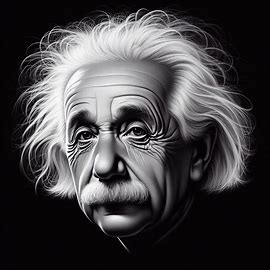Albert Einstein, a name synonymous with genius, revolutionized the world of physics in the early 20th century. His theories, particularly the theory of relativity, have profoundly impacted our understanding of the universe. This article delves into how Einstein's theory changed modern physics, exploring its principles, implications, and lasting influence on scientific thought.
The Birth of Relativity
Special Theory of Relativity
In 1905, Einstein published his Special Theory of Relativity, fundamentally altering the way we perceive space and time. The two postulates of this theory are:
- The Principle of Relativity: The laws of physics are the same for all observers in uniform motion relative to one another.
- The Constancy of the Speed of Light: The speed of light in a vacuum is constant and independent of the motion of the light source or observer.
One of the most famous equations derived from this theory is , which illustrates the equivalence of mass and energy. This equation implies that a small amount of mass can be converted into a tremendous amount of energy, a principle that underlies nuclear reactions and has profound implications for both energy production and theoretical physics.
General Theory of Relativity
Einstein expanded on these ideas in 1915 with his General Theory of Relativity. This theory proposed that gravity is not a force but a curvature of spacetime caused by mass and energy. The key concepts include:
- Spacetime Curvature: Massive objects cause spacetime to curve, and this curvature affects the motion of other objects, which we perceive as gravity.
- The Equivalence Principle: The effects of gravity are indistinguishable from the effects of acceleration.
This theory was confirmed in 1919 when Arthur Eddington observed the bending of starlight around the sun during a solar eclipse, a phenomenon predicted by Einstein's equations.
Impact on Modern Physics
Revolutionizing Astrophysics
Einstein's theories have been instrumental in shaping our understanding of the cosmos. The General Theory of Relativity laid the groundwork for the Big Bang theory, explaining the expansion of the universe. It also predicts the existence of black holes, regions of spacetime where the curvature becomes infinite, and nothing, not even light, can escape their gravitational pull. The recent detection of gravitational waves by LIGO (Laser Interferometer Gravitational-Wave Observatory) provided further evidence of Einstein's predictions, opening new avenues for astronomical research.
Quantum Mechanics and Beyond
While Einstein himself had reservations about quantum mechanics, his work indirectly influenced its development. The relationship between energy and mass ( ) plays a crucial role in particle physics and the study of subatomic particles. Furthermore, the quest to reconcile general relativity with quantum mechanics has led to the development of theories such as quantum gravity and string theory, which aim to provide a unified description of all fundamental forces.
Technological Advancements
Einstein's theories have not only advanced theoretical physics but also spurred technological innovations. The understanding of the relationship between energy and mass has been crucial in the development of nuclear energy and medical imaging techniques such as PET scans. GPS technology also relies on adjustments for the relativistic effects of time dilation, predicted by both the special and general theories of relativity, to provide accurate location data.
Lasting Legacy
Einstein's impact on modern physics cannot be overstated. His theories have provided a deeper understanding of the universe's workings and have inspired countless physicists to explore new frontiers. The quest to fully comprehend the implications of relativity continues to drive scientific discovery, pushing the boundaries of what we know about space, time, and the fundamental nature of reality.
In conclusion, Einstein's theory of relativity has profoundly changed modern physics, influencing both our theoretical understanding and practical applications. From reshaping our perception of gravity and spacetime to driving technological advancements, Einstein's legacy continues to be felt across the scientific community and beyond.
